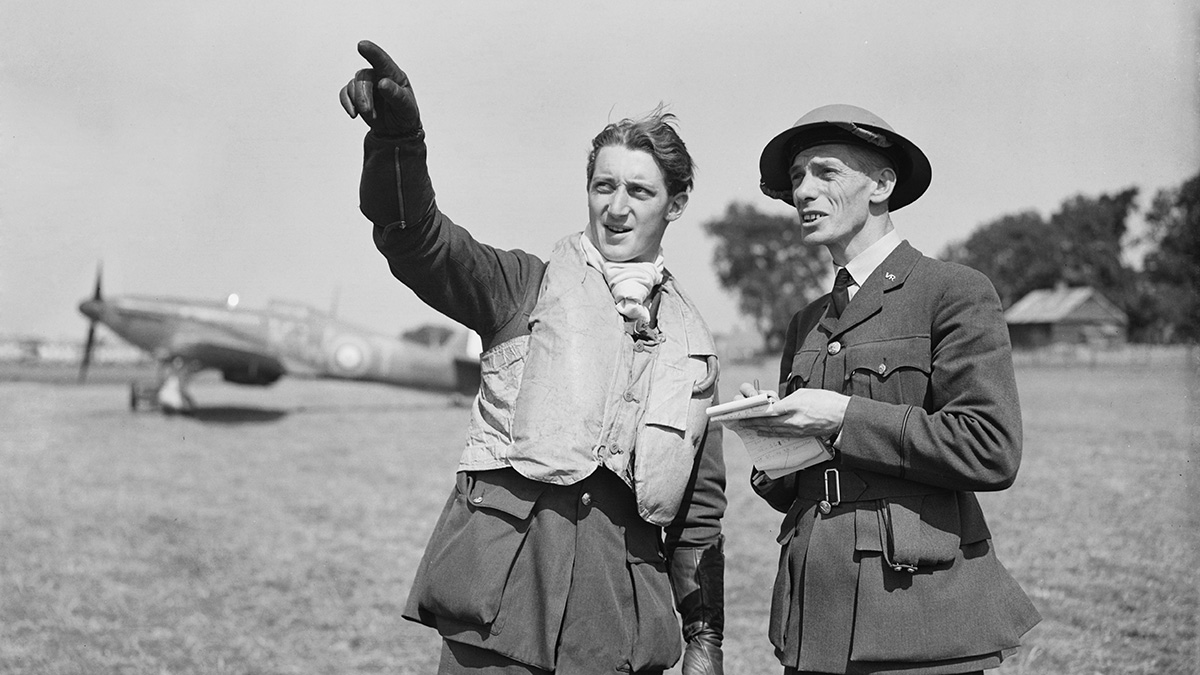What was the Battle of Britain and why was it so important?
German troops were ultimately unsuccessful in their aerial assault of the British mainland

A free daily email with the biggest news stories of the day – and the best features from TheWeek.com
You are now subscribed
Your newsletter sign-up was successful
Today marks the 78th anniversary of the start of the Battle of Britain, seen as a major turning point in the Second World War.
This year, the anniversary coincides with a flypast over Buckingham Palace that will take place later today to mark 100 years of the Royal Air Force.
The Queen will be among members of the royal family attending a day of events to celebrate the centenary, the BBC reports. A special service will take place at Westminster Abbey and more than 1,000 service men and women will take part in a parade on The Mall.
The Week
Escape your echo chamber. Get the facts behind the news, plus analysis from multiple perspectives.

Sign up for The Week's Free Newsletters
From our morning news briefing to a weekly Good News Newsletter, get the best of The Week delivered directly to your inbox.
From our morning news briefing to a weekly Good News Newsletter, get the best of The Week delivered directly to your inbox.
Aircraft representing the RAF across the decades will then be involved in the flypast over London at 1pm UK time. Aircraft from the Battle of Britain Memorial Flight including the Dakota, Lancaster, Hurricane and Spitfire are part of the line-up.
The head of the Royal Air Force, air chief marshal Sir Stephen Hillier, said: “Bringing together that big parade, the new colour and the flypast - this is going to be a tremendous day, and it is about commemorating all of our history, and it is about celebrating what we do today.”
What happened in the Battle of Britain?
On 18 June 1940, following the Nazis’ successful occupation of France, newly elected PM Winston Churchill gave a speech pronouncing: “The Battle of France is over. The Battle of Britain is about to begin.”
A free daily email with the biggest news stories of the day – and the best features from TheWeek.com
The German strategy was designed to ensure air superiority over Britain as a precursor to Operation Sea Lion, a full-scale invasion of the UK. On 10 July, the Luftwaffe began bombing shipping centres on the south coast, before switching its targets to RAF airfields and infrastructure. Over the course of the next 12 weeks, both sides also conducted “terror bombing” of civilian populations, inflicting huge damage on London and Berlin.
Although the Luftwaffe greatly outnumbered the RAF, the UK's defence systems were more sophisticated and the British use of radar detection was key to its effective resistance.
What is Battle of Britain Day?
Battle of Britain Day occurred on Sunday 15 September 1940, when the German Luftwaffe launched its largest and most concentrated attack against London in the hope of drawing the RAF into a battle of annihilation. Around 1,500 aircraft took part in the air battles, which lasted until dusk.
The day is seen as a major turning point in the Second World War as Hitler, having lost the battle, decided to postpone Operation Sea Lion – the amphibious assault by German armed forces intended to prelude an invasion onto the British mainland.
Having been defeated in daylight, the German Luftwaffe turned its attention to the Blitz night campaign, which lasted until May 1941.
“In essence, Battle of Britain Day ensured that the Western Allies had a base from which to launch the campaign offensive which would bring about the end of the War,” says historian Paul Addison in his book The Burning Blue, and consequently it ensured “that there would be a Western Allied presence on the battlefield to meet the Soviet Red Army in central Europe at the end of the war in May 1945”.
It wasn't just the British and the Germans who saw action. The RAF was made up of military men from all over the world, among them Poles, New Zealanders, Canadians and Czechs. All fought for the Allied cause during the Battle of Britain.
Why was it so important?
Historians widely agree that the importance of the Battle of Britain was, first and foremost, psychological. As the first defeat of Hitler's military forces in the War, it was an important factor in boosting the morale of both the British public and of military. In 2010, one veteran RAF pilot, Tony Iveson, told the BBC: “As far as we were concerned, we saved the world.”
Churchill considered the RAF’s role in the war effort to have been vital, famously declaring: “Never in the field of human conflict was so much owed by so many to so few.” The postponement of Hitler's invasion plans also meant that Britain could become a stronghold for the Allied forces as the War continued, and would eventually become the base from which the liberation of Western Europe was launched, in 1944.
More than 500 men died in the Battle of Britain and nearly 800 more did not live to see the end of the war in 1945. There are thought to be fewer than ten veterans of the battle still alive.
Infographic by www.statista.com for TheWeek.co.uk.**